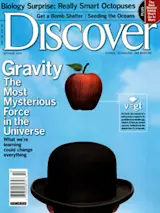Ovaries are not just crucial for the creation of children; they may also be crucial for the survival of the mother. Biodemographer James Carey of the University of California at Davis reports that transplanting young ovaries into old mice increases the life span of the recipients.
He and his team removed ovaries from a group of mice several weeks after birth and then allowed the animals to mature. The researchers then implanted ovaries from 2-month-old mice into the test subjects when they were 5, 8, or 11 months old. The 11-month-old recipients lived 60 percent longer than mice whose ovaries were removed and never replaced and 40 percent longer than mice that had undergone no surgery at all. The transplant mice continued to have estrous cycles up to 200 days after the age at which normal mice become infertile. In human terms, the changes are equivalent to increasing the life ...














